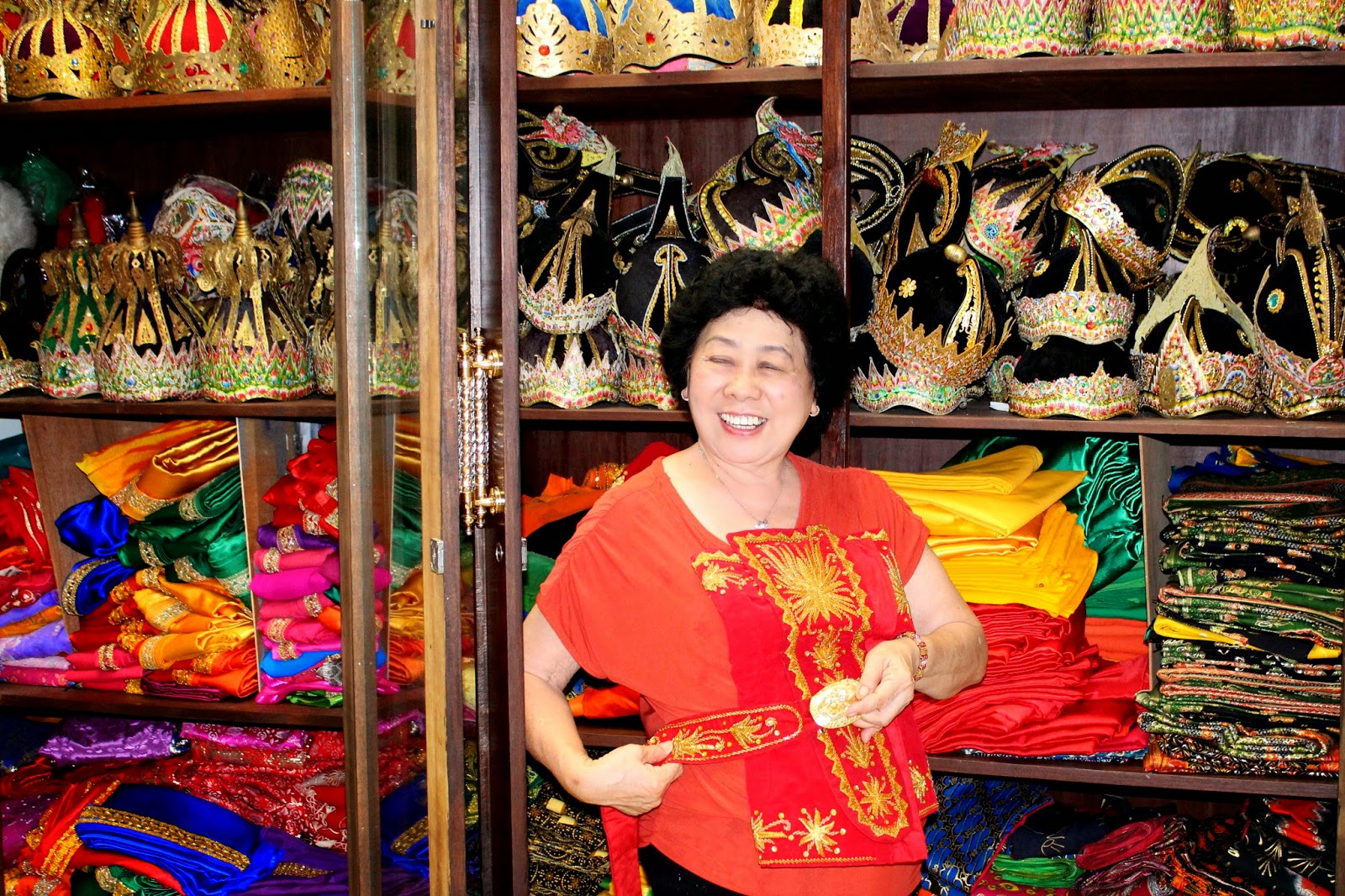Dancing away discrimination
The dancers’ and musicians’ phones stay silent. They haven’t rung for about a year since the
last big show in the East Java hilltown of Malang. Unless things change soon it will be time to
hang up the ankle bangles.
For wayang orang,
the elegant Javanese performance that uses traditional wayang kulit (shadow puppet) themes drawn from the great Hindu classics
of the Ramayana and the Mahabharata is being pushed off stage.
The sharp elbows and being exercised by Western-style pop
groups, gaudy comedy skits and ear-grating karaoke performances.
The glory days of high Javanese culture outside Yogyakarta seem
to have passed. The sepia invitations
and programs are fading despite the plastic wrappers. But even when well
preserved the photos of partying VIPs pin dates precisely. Did people really dress like that last century? How droll!
All this should lead into a sad tale about Shinta Dewi
Kusumawati, whose Bara Pra Tama group performed for more than two decades before
national leaders and their guests across the archipelago.
It also showcased Javanese culture at ambassadorial events through
Asia, Australia, the United States and Europe – including two months in Spain.
But the jolly 72 year old, who still moves with the grace of
a dancer at ease with her body, will have no tears dripping on her albums.
“That’s all in the past; the high point was the 1990s. One day we performed four times. But it was
wonderful while it lasted,” said the dry-eyed optimist.
“I started the group because I loved indigenous dance and
wanted to share it with the world.
“The problem today is funding, and officials not wanting big
dance groups to open events. It costs around Rp 40 million (US$ 3,500) for a
full performance. It requires an effort
by Government to preserve our culture.
“Who knows – wayang
orang may yet become popular again.”
If it does she’ll be well prepared. Her house is like a factory with a neat
office out front but a cavernous warehouse behind; Ms Aladdin’s Happy Place.
Wardrobes and cupboards jostle with boxes and showcases. Cabinets
and drawers squeeze lockers and trunks, all full of an astonishing collection
of costumes and accessories.
These aren’t museum pieces, they’re ready to wear, every besequinned
batik imaginable, multi-layered jackets, gemstone-studded headdresses, gorgeous
skirts, bracelets and beads – all in top condition.
There’s, enough gear to stage an historical TV mini-series
and know the characters will look authentic even if the script is suspect.
Need a wavy-blade kris to thrust into a belt or evildoer? Or a bow and arrow to shoot a hart that
morphs into a dying princess, a heartless action? This is your one-stop weapon
store.
Every few weeks the costumes lift their skirts and step out
of the closet for some anti-mold sunshine therapy. Then they smooth out the
wrinkles and jostle their way back into the wardrobes to hang out with their
mates.
In Shinta’s front room where the sideboard sags with trophies,
are sets of garment goodie-bags. They’re
waiting to be collected for a wedding, the costumes for tari gambyong, the serpentine-armed dancers who greet guests.
Curiously the custodian of all this culture isn’t a
kraton-born ethnic Javanese. Shinta’s
original name before she was forced to change by the Soeharto government during
one of its many attempts to suppress the Chinese, was Kwee Kiat Siang.
Although she married a Chinese, the late Oei Fee Ling, the
couple’s daughter Irene Kartika Widjaya, doesn’t have her parents’ features.
She worked as a model and became a principal dancer in Bara Pra Tama. ‘Kartika’ means a star.
Irene looks so much like a photocopy version of the national
heroine that she was regularly featured as a Kartini lookalike in hobbling sarong
and kebaya (traditional tight
blouse), the exemplar of Javanese womanhood.
Her Mom said Irene stopped entering Kartini competitions
when judges asked her how much she’d pay to win.
“I used to keep out of the way and adopt a low profile when
we gave performances because in those days there was still prejudice against
the Chinese,” said Shinta. She stayed
busy behind the curtain repairing rips, finding lost props, soothing hurt
feelings and then scrutinizing the accounts.
“Some didn’t like the idea of a Chinese being involved in wayang orang, but they accepted it when
they saw Irene perform.
“Our family has been here for hundreds of years. I don’t know where we’re originally from and
I don’t even speak Mandarin.
“Although I was trained for ballet I’ve always loved wayang orang. When I first saw it as a child I was learning
ballet. However I thought at the time that
if I have a daughter I hope she’ll want to become a Javanese dancer.”
She did. Irene, 42,(left, in her dancing days) now lives in Jakarta and hung up her
crown about six years ago for motherhood and a business career. She said Shinta who always accompanied the
40-strong group on its overseas performances, was never a pushy Mom, but a
woman dedicated to “keeping alive the beautiful cultural inheritance that we
all share.”
“There is no difference between the Chinese and Javanese, we
are all Indonesians holding hands together,” said Irene.
“I wasn’t aware I was different until I went to university
and was labelled because I was Chinese and Catholic.
“We must see the good in each other, not the differences. We
are all human – don’t put us in boxes marked ethnicity and religion.”
Said her mother Shinta: “Wayang
orang represents the spirit of life.
It’s not nationalistic, but it helps us understand who we are.”
(First published in The Jakarta Post J Plus 25 May 2014)









